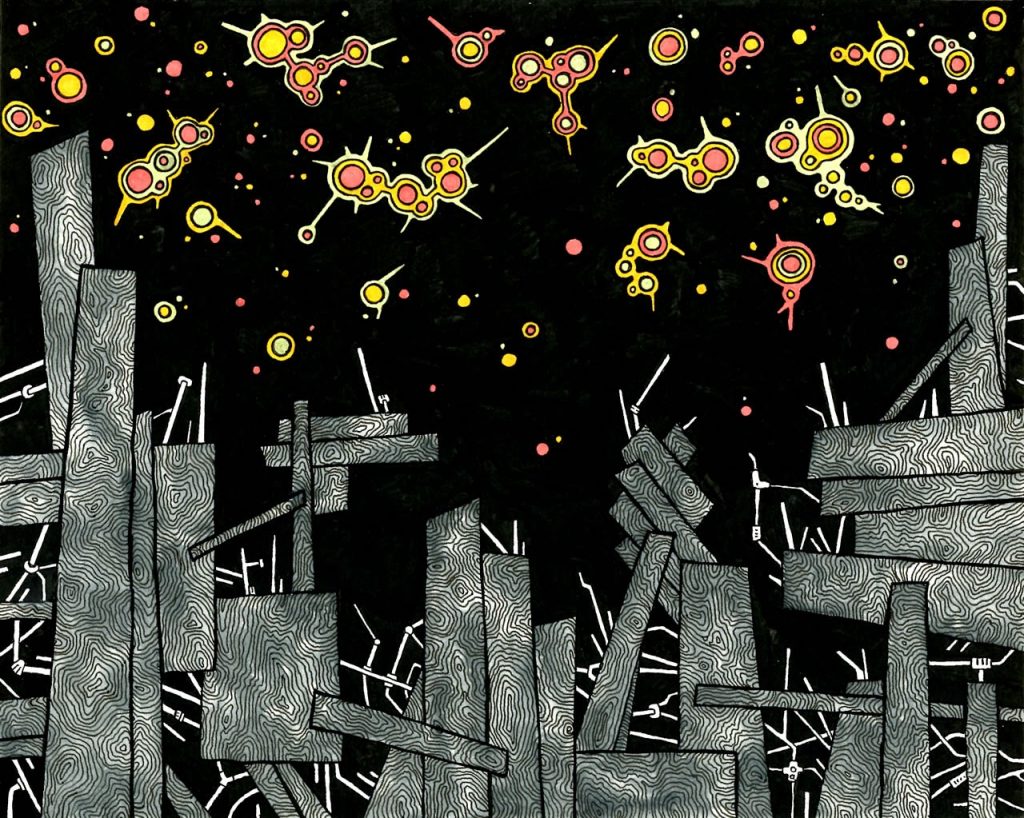The Citizens are Mistaken
 Note: I leave on Sunday (8/21) for a retreat at Spirit Rock and won’t get home until very late on Aug 30. It will take me awhile to get back to “normal” once I return, so I probably won’t be posting again until Monday, Sept 5. Please check back then.
Note: I leave on Sunday (8/21) for a retreat at Spirit Rock and won’t get home until very late on Aug 30. It will take me awhile to get back to “normal” once I return, so I probably won’t be posting again until Monday, Sept 5. Please check back then.
As part of my getting-ready-to-travel ritual, I have selected a passage (more or less at random) from Invisible Cities, by Italo Calvino, to accompany me as I venture out into the world.
I offer it here for your digital traveling pleasure:
Cities & The Sky. 2.
This belief is handed down in Beersheba: that, suspended in the heavens, there exists another Beersheba, where the city’s most elevated virtues and sentiments are poised, and that if the terrestrial Beersheba will take the celestial one as its model the two cities will become one. The image propagated by tradition is that of a city of pure gold, with silver locks and diamond gates, a jewel-city, all inset and inlaid, as a maximum of laborious study might produce when applied to materials of maximum worth. True to this belief, Beersheba’s inhabitants honor everything that suggest for them the celestial city: they accumulate noble metals and rare stones, they renounce all ephemeral excesses, they develop forms of composite composure.
They also believe, these inhabitants, that another Beersheba exists underground, the receptacle of everything base and unworthy that happens to them, and it is their constant care to erase from the visible Beersheba every tie or resemblance to the lower town. In the place of roofs they imagine that the underground city has overturned rubbish bins, with cheese rinds, greasy paper, fish scales, dishwater, uneaten spaghetti, old bandages spilling from them. Or even that its substance is dark and malleable and thick, like the pitch that pours down from the sewers, prolonging the route of the human bowels, from black hole to black hole, until it splatters against the lowest subterranean floor, and from the lazy, encircled bubbles below, layer upon layer, a fecal city rises, with twisted spires.
In Beersheba’s beliefs there is an element of truth and one of error. It is true that the city is accompanied by two projections of itself, one celestial and one infernal; but the citizens are mistaken about their consistency. The inferno that broods in the deepest subsoil of Beersheba is a city designed by the most authoritative architects, built with the most expensive materials on the market, with every device and mechanism and gear system functioning, decked with tassels and fringes and frills hanging from all the pipes and levers.
Intent on piling up its carats of perfection, Beersheba takes for virtue what is now a grim mania to fill the empty vessel of itself; the city does not know that its only moments of generous abandon are those when it becomes detached from itself, when it lets go, expands. Still, at the zenith of Beersheba there gravitates a celestial body that shines with all the city’s riches, enclosed in the treasury of cast-off things: a planet a-flutter with potato peels, broken umbrellas, old socks, candy wrappings, paved with tram tickets, fingernail-cuttings and pared calluses, eggshells. This is the celestial city, and in its heavens long-tailed comets fly past, released to rotate in space from the only free and happy action of the citizens of Beersheba, a city which, only when it shits, is not miserly, calculating, greedy.
